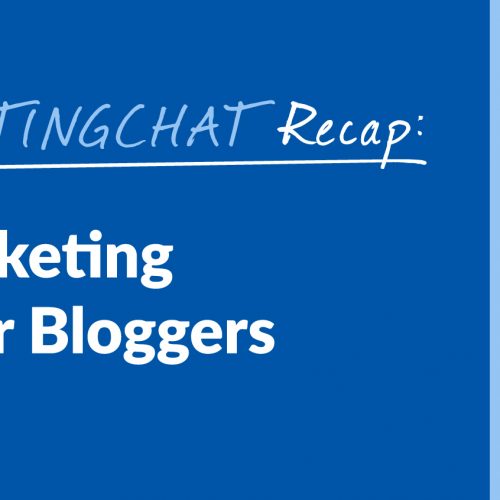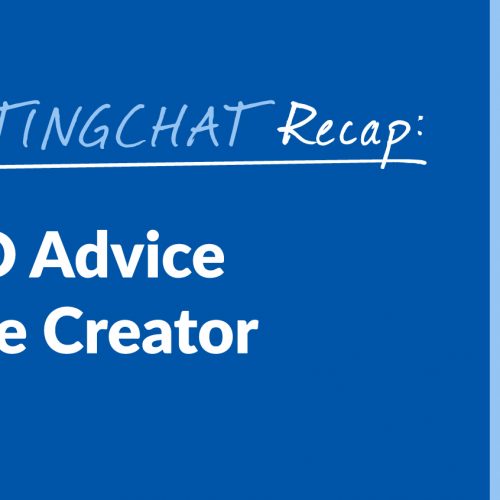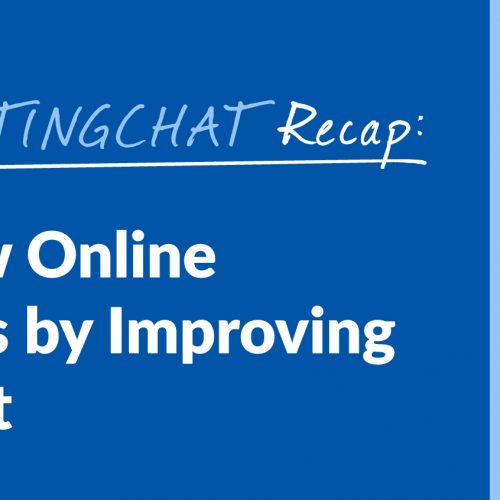#ContentWritingChat Recap: Content Marketing Strategies for Bloggers with Lilach Bullock
Are you searching for some great content marketing tips? You’ve come to the right place! We’re recapping our latest #ContentWritingChat, which was packed with tips you’ll want to start using today. Keep reading to see what our chat participants had to say! #ContentWritingChat Recap: Content Marketing Strategies for Bloggers with Lilach Bullock Join us for #ContentWritingChat on Tuesday, November 8th at 10 AM Central Time with @lilachbullock! pic.twitter.com/vPpJslCPOA — Express Writers (@ExpWriters) November 1, 2016 Our guest host for this week’s chat was Lilach Bullock. Lilach is a speaker, as well as a social media consultant and trainer. She joined our chat to share some of her top content marketing tips for bloggers. Q1: Discuss how important blogging is to content marketing. Of course we know that there’s more to content marketing than just blogging. However, blogging does play a huge part in our content marketing strategies. Here’s what some of Tuesday’s chat participants had to say about it: A1 Very, very important. Blogging offers one of the easiest ways to provide valuable content to audiences #ContentWritingChat — Lilach Bullock (@lilachbullock) November 8, 2016 A1 With a good blog, you can offer more value to your customers and increase your traffic #ContentWritingChat — Lilach Bullock (@lilachbullock) November 8, 2016 As Lilach said, blogging is very important to content marketing. She said it provides a way for you to give your audience valuable content. It becomes your place to consistently provide your audience with the information they need. She also said a good blog offers value to customers and increases traffic to your website. After all, people will want to head over to your website to see what you’re sharing! A1 Blogging is the cornerstone of content marketing! It’s your consistent content platform, voice, open book for readers #ContentWritingChat — Julia McCoy ? (@JuliaEMcCoy) November 8, 2016 Our CEO, Julia, was spot-on with her answer! She said blogging is your consistent content platform. It’s also the voice for your brand, which is huge. A1: Blogging gives you a chance to showcase your expertise & offer valuable knowledge. #ContentWritingChat @writingchat https://t.co/CT9dWdRk7z — Polaris Direct (@PolarisDirect) November 8, 2016 If you want to showcase your expertise and offer valuable knowledge to your readers, blogging is where it’s at! A1: A blog can be where you send your audience to learn (more), take action; plus they can SHARE posts for wider reach.#ContentWritingChat — ThinkSEM (@ThinkSEM) November 8, 2016 Sarah knows just how powerful a blog post can be. She said you can send your audience to your blog so they can learn more. Then, you can encouraged them to take action from your posts. Of course, it’s also great if they share your posts because it sends more traffic your way! a1 Blogging solid information to target audience is very important. Keeps audience engaged & keeps info fresh for Search #contentwritingchat https://t.co/T99kFINH3h — Debi Norton (@BRAVOMedia1) November 8, 2016 Debi knows just how important blogging can be. As she said, it’s important to share great information that your target audience would be interested in. It keeps them engaged and keeps the information fresh for search engines. Q2: How can bloggers get started with putting together a content marketing strategy? Now that you know just how integral blogging is to your content marketing plan, it’s time to create a strategy. How do you do it, you ask? Here are some tips to keep in mind: A2 There are 5 important aspects to remember: short form content for blogging, premium content for subscribers #ContentWritingChat — Lilach Bullock (@lilachbullock) November 8, 2016 A2 cont’d) SEO, designing visual content and creating audio content #ContentWritingChat — Lilach Bullock (@lilachbullock) November 8, 2016 Lilach believes there are five important aspects to remember here. She knows how great short-form content can be for your blog, however we also know long-form content is great as well. It’s important to experiment and see what your audience enjoys the most. She also recommends creating premium content for your subscribers. Next, she mentions SEO, designing visual content, and creating audio content. A2: I always say: First & foremost, KNOW THY AUDIENCE. Next, what goals do you want to achieve? Work back from there. #ContentWritingChat https://t.co/pobpItkdoN — ThinkSEM (@ThinkSEM) November 8, 2016 As Sarah said, you need to know your audience. That’s where it all starts. You cannot expect to create content without first knowing who your audience is. Then, figure out the goals you want to achieve and start planning to make them a reality. A2) Define your objectives, your niche and work out who your audience is. Plan before you do anything else #ContentWritingChat — Tim Fawkes (@Tim_Fawkes) November 8, 2016 Tim feels the same way! He knows it’s important to understand your audience, define your objectives, and then plan from there. A2 It all starts with your objectives. From there, define the goals/strategies/tactics to help you reach those KPIs. #ContentWritingChat — Olivia Dello Buono (@oliviadello) November 8, 2016 Olivia also knows the importance of setting objectives. Once you have them in mind, you can determine the strategies that will help you get your desired results. A2 Get to know your audience like they’re a friend. Speak their verbage. Map out a consistent editorial calendar #ContentWritingChat — Julia McCoy ? (@JuliaEMcCoy) November 8, 2016 We can’t stress this point enough: get to know your audience. Speak their language so you appeal to them. And don’t forget to make an editorial calendar. When you plan in advance, content creation is much less stressful. A2 Begin with the end in mind: What action(s) do you want your audience to take as a result of your efforts? #contentwritingchat — Bill Skowronski (@BillSkowronski) November 8, 2016 Bill recommends beginning with the end in mind. What actions do you want your audience to take? It’s important to remember this when creating content for your blog. A2: have a solid marketing plan for all the platforms you use and make sure they integrate together smoothly #contentwritingchat — Stephanie Parks … Read more







